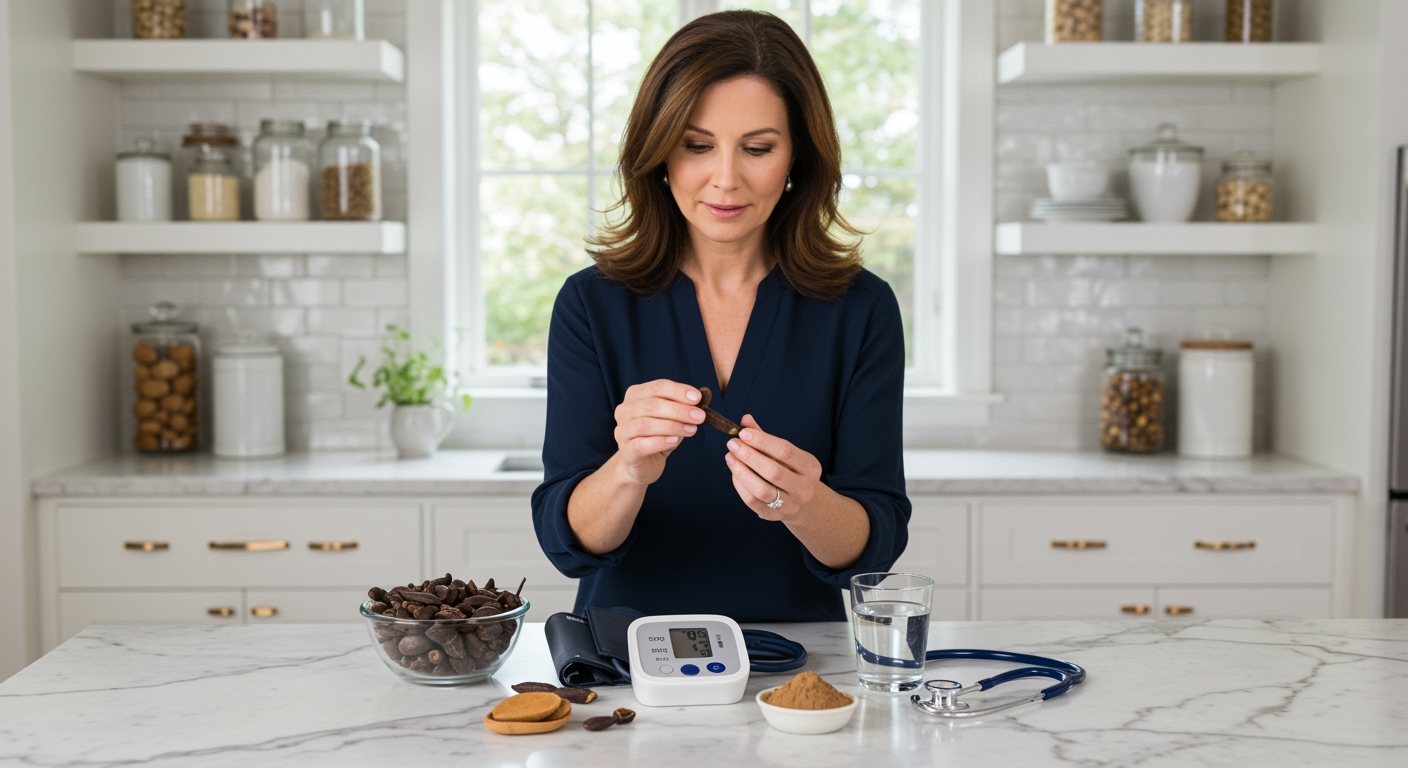✪ Key Takeaway: Velvel beans may help raise low blood pressure through L-DOPA content, but require medical supervision due to potential side effects.
Introduction
Your blood pressure reading shows numbers lower than 90/60 mmHg again, and you feel dizzy every time you stand up quickly.
You might be wondering if natural foods like velvel beans could help raise your blood pressure to healthier levels without relying solely on medications.
Hi, I am Abdur, your nutrition coach, and today I am going to explain whether velvel beans can actually help people with low blood pressure and what science tells us about this tropical legume.
What Are Velvel Beans and How Do They Work?
Velvel beans, scientifically known as Mucuna pruriens, are tropical legumes that grow in Africa, India, and the Caribbean regions.
These fuzzy brown pods contain seeds that have been used in traditional medicine for centuries to treat various health conditions.
The most important compound in velvel beans is L-DOPA, which is a precursor to dopamine in your brain.
L-DOPA can cross the blood-brain barrier and convert into dopamine, which plays a crucial role in regulating your cardiovascular system.
When dopamine levels increase in your body, it can influence your heart rate and blood vessel function in ways that might affect your blood pressure.
However, the relationship between dopamine and blood pressure is complex and can vary significantly from person to person.
✪ Fact: Velvel beans contain up to 5% L-DOPA by weight, making them one of the richest natural sources of this compound.
Can Velvel Beans Actually Raise Low Blood Pressure?
The answer is not straightforward because dopamine effects on blood pressure can be unpredictable.
In some people, increased dopamine levels can stimulate the heart and potentially raise blood pressure through enhanced cardiac output.
However, dopamine can also act on different receptors in your body that might actually lower blood pressure by dilating blood vessels.
Research on velvel beans specifically for low blood pressure is limited, and most studies focus on their effects in Parkinson disease patients.
Some people with low blood pressure report feeling more energetic and experiencing fewer dizzy spells after consuming velvel bean supplements, but this could be due to improved overall circulation rather than direct blood pressure elevation.
The timing of consumption also matters because L-DOPA effects can vary throughout the day and interact with your natural circadian rhythms.
✪ Pro Tip: Monitor your blood pressure regularly if you decide to try velvel beans, as individual responses can vary dramatically.
What Are the Potential Risks and Side Effects?
Velvel beans can cause significant side effects that you need to understand before considering them for low blood pressure.
The high L-DOPA content can lead to nausea, vomiting, and digestive upset, especially when consumed on an empty stomach.
Some people experience mood changes, anxiety, or restlessness because dopamine affects your brain chemistry in complex ways.
Velvel beans can interact dangerously with certain medications, particularly antidepressants and blood pressure medications.
The raw beans contain compounds that can be toxic if not properly processed, so consuming uncooked velvel beans is never recommended.
Long-term use might lead to tolerance, meaning you would need increasingly larger amounts to achieve the same effects.
People with certain mental health conditions or those taking psychiatric medications should avoid velvel beans completely due to potential dopamine interactions.
✪ Note: Always consult your doctor before trying velvel beans, especially if you take any medications or have underlying health conditions.
Are There Better Alternatives for Low Blood Pressure?
Instead of relying on velvel beans, you have several safer and more proven options for managing low blood pressure naturally.
Increasing your salt intake moderately can help raise blood pressure, but this should be done under medical guidance to avoid overconsumption.
Drinking more water throughout the day helps maintain adequate blood volume, which supports healthy blood pressure levels.
Regular physical activity, particularly exercises that strengthen your heart and improve circulation, can help stabilize blood pressure naturally.
Eating smaller, more frequent meals prevents the blood pressure drops that often occur after large meals in people with hypotension.
Compression stockings can help prevent blood pooling in your legs and reduce dizziness when standing up quickly.
These approaches are generally safer and have more predictable effects than experimenting with potent compounds like those found in velvel beans.
The Bottom Line
Velvel beans might influence blood pressure through their L-DOPA content, but the effects are unpredictable and potentially risky for most people with low blood pressure.
Your health deserves proven solutions, not experimental gambles with unknown outcomes.
I would love to hear about your experiences with managing low blood pressure naturally, so please share your thoughts, questions, or concerns in the comments below.
References
At NutritionCrown, we use quality and credible sources to ensure our content is accurate and trustworthy. Below are the sources referenced in creating this article:
- UTEP Herbal Safety: Velvel Bean Facts
- Vinmec: Diet for People with Low Blood Pressure
- PubMed: Mucuna pruriens Research
- PMC: Mucuna pruriens Study





